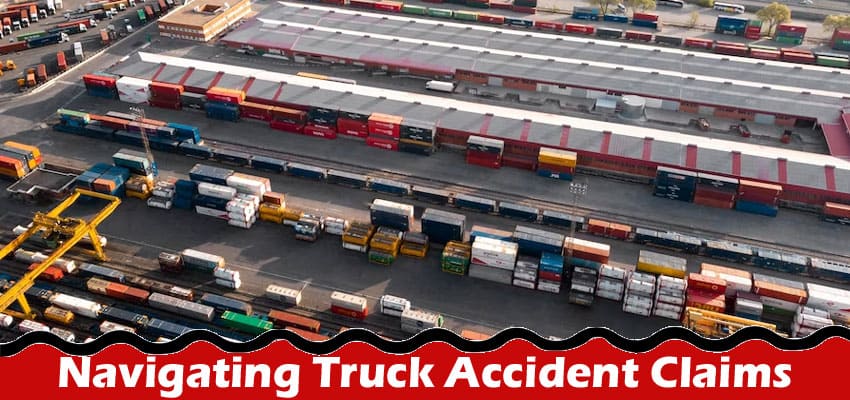Being part of a truck accident can be a brutal experience, and the legal implications can be equally detrimental to all things that follow. Truck accidents often fall under the jurisdiction of both federal regulations and state laws, creating a complex web of legal considerations. In this article, we will take steps to gain knowledge on the realm of truck accident claims and explore the distinct impact of federal regulations versus Florida laws in navigating these challenging cases.
Key Federal Regulations Impacting Truck Accidents
Federal regulations, supervised by the Federal Motor Carrier Safety Administration (FMCSA), establish standardized guidelines applicable across the United States. These regulations include hours of service (HOS) limitations, vehicle maintenance, driver qualifications, drug testing, and more.
They provide a consistent framework to enhance road safety and ensure the proper functioning of commercial trucks nationally. These federal regulations might not make sense for the average person, and you might be unsure how they affect your truck accident claim. Contact a truck accident lawyer at Meldon Law for additional clarification.
However, for the time being, here are several critical federal regulations that play a role in truck accident claims:
- Hours of Service (HOS) regulations dictate the maximum number of hours any truck driver can operate within a specific time frame to prevent fatigue and enhance road safety.
- Vehicle maintenance and inspection: The FMCSA mandates regular inspections and maintenance of commercial trucks to ensure they are in proper working condition, minimizing the risk of accidents caused by mechanical failures.
- Driver qualifications: Federal regulations establish strict guidelines for commercial truck drivers’ qualifications, including age, training, and medical requirements.
- Drug and alcohol testing: Trucking companies must conduct regular drug and alcohol testing for drivers to ensure they are not impaired while operating a commercial vehicle.
Unique Aspects of Florida Laws
On the other hand, Florida truck laws specifically address the unique considerations of the state. This includes comparative negligence, no-fault insurance, and the statute of limitations for filing claims.
In addition to federal regulations, Florida’s state laws introduce specific factors that can significantly impact truck accident claims:
- Modified comparative negligence: Florida operates under a modified comparative negligence system, where each party’s degree of fault is considered when determining compensation. This means that even if a plaintiff is partially at fault, they may still be eligible for some compensation.
- No-fault insurance: Florida is a no-fault insurance state, which means that after an accident, individuals turn to their insurance policies for compensation regardless of who is at fault. However, serious injuries or cases exceeding a certain threshold can lead to pursuing a personal injury claim against the at-fault party.
- Statute of limitations: Florida imposes a statute of limitations, the time frame within which a lawsuit must be filed. In most personal injury cases, including truck accidents, the statute of limitations is four years from the accident date.
Navigating the Legal Process
Bringing a truck accident claim involves several key steps:
- Consultation with an attorney: Enlisting the expertise of a personal injury attorney is crucial. They can assess the viability of your case, gather evidence, and guide you through the complex legal process.
- Investigation: Your lawyer will likely conduct a thorough investigation to gather evidence, including accident reports, eyewitness testimonies, and potentially expert opinions on the cause of the accident.
- Negotiation and settlement: Many truck accident claims are resolved through negotiation with the at-fault party’s insurance company. Your attorney will do what it takes to achieve a hefty settlement that covers all your losses.
- Litigation: If a fair settlement cannot be reached through negotiation, your attorney may recommend pursuing litigation. This involves filing a lawsuit and presenting your case in court to seek compensation through a judgment.
Determining Liability
One of the central challenges in truck accident claims is determining liability. Factors such as driver negligence, mechanical failures, improper cargo loading, and violations of federal regulations can all contribute to an accident. Identifying the responsible parties is crucial in building a successful claim.
Get Help with Your Florida Accident Claim Today!
Truck accident claims demand a comprehensive understanding of federal regulations and state laws, particularly in a state like Florida, where unique legal considerations apply. By navigating the dual landscape of truck accident laws with professional assistance, you can position yourself for a successful claim that seeks the compensation you deserve for the accident’s physical, emotional, and financial toll.


